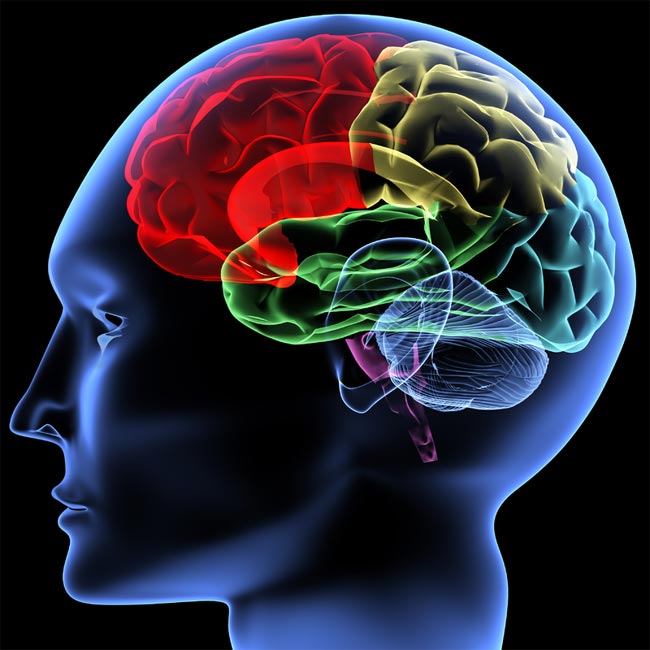Brain Scans Could Guide Career Choices

Get the world’s most fascinating discoveries delivered straight to your inbox.
You are now subscribed
Your newsletter sign-up was successful
Want to add more newsletters?

Delivered Daily
Daily Newsletter
Sign up for the latest discoveries, groundbreaking research and fascinating breakthroughs that impact you and the wider world direct to your inbox.

Once a week
Life's Little Mysteries
Feed your curiosity with an exclusive mystery every week, solved with science and delivered direct to your inbox before it's seen anywhere else.

Once a week
How It Works
Sign up to our free science & technology newsletter for your weekly fix of fascinating articles, quick quizzes, amazing images, and more

Delivered daily
Space.com Newsletter
Breaking space news, the latest updates on rocket launches, skywatching events and more!

Once a month
Watch This Space
Sign up to our monthly entertainment newsletter to keep up with all our coverage of the latest sci-fi and space movies, tv shows, games and books.

Once a week
Night Sky This Week
Discover this week's must-see night sky events, moon phases, and stunning astrophotos. Sign up for our skywatching newsletter and explore the universe with us!
Join the club
Get full access to premium articles, exclusive features and a growing list of member rewards.
Brain scans may guide a person toward the optimal career, new research suggests.
The results show people's cognitive strengths and weaknesses are linked to differences in the volume of gray matter in certain parts of the brain.
As such the findings offer "the possibility that brain scans could be used in the future to develop a profile of a person's gray matter in different areas of the brain," Richard Haier of the University of California, School of Medicine (Emeritus), Irvine, told LiveScience. "And this profile could be used to help people decide what kinds of vocations they might be good at just like test scores are used."
Brain voxels
Haier and his colleagues analyzed data from 40 people, ages 18 to 35, who took eight aptitude tests used by the Johnson O'Connor Research Foundation (JOCRF) for career guidance. They also had structural brain scans, which showed the volume of gray matter for each of millions of 3-dimensional units, called voxels, in the brain images.
The tests included those for two kinds of memory (verbal and number), two types of numerical ability, speed of reasoning, and two types of spatial aptitude.
Results showed if one were to look at a general memory test score you'd be missing part of the picture. If a person was good at, say, verbal memory and not so much in numerical, their patterns of gray matter would differ from someone with high overall memory but low verbal type.
Get the world’s most fascinating discoveries delivered straight to your inbox.
Future career counselors?
Brain scans could be used to complement the aptitude tests to give a more reliable idea of a person's ideal career.
"Nobody is suggesting brain scans would predict this so well you wouldn't need to talk to anybody, although this is a science-fiction possibility – but whether society would accept this is dubious," Haier said.
The link between brains and jobs makes sense, in the Earthly realm. "It's not a giant leap to believe the brain has something to do with mental strengths and weaknesses," which have to do with a person's vocation.
For instance, while most of us can learn to drive, not everyone can become a professional racecar driver. Whether it's relatively slow reaction time or a weakness in the spatial reasoning department, there are some special kinds of cognition involved in driving at extremely high speeds, Haier said.
"Theoretically there might be something about their brains that allows them to excel in this profession," Haier said.
- 10 Ways to Keep Your Mind Sharp
- 10 Things You Didn't Know About the Brain
- Brain-Training Games
Jeanna Bryner is managing editor of Scientific American. Previously she was editor in chief of Live Science and, prior to that, an editor at Scholastic's Science World magazine. Bryner has an English degree from Salisbury University, a master's degree in biogeochemistry and environmental sciences from the University of Maryland and a graduate science journalism degree from New York University. She has worked as a biologist in Florida, where she monitored wetlands and did field surveys for endangered species, including the gorgeous Florida Scrub Jay. She also received an ocean sciences journalism fellowship from the Woods Hole Oceanographic Institution. She is a firm believer that science is for everyone and that just about everything can be viewed through the lens of science.
 Live Science Plus
Live Science Plus










